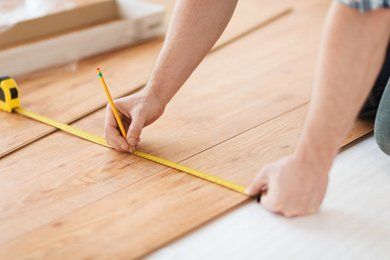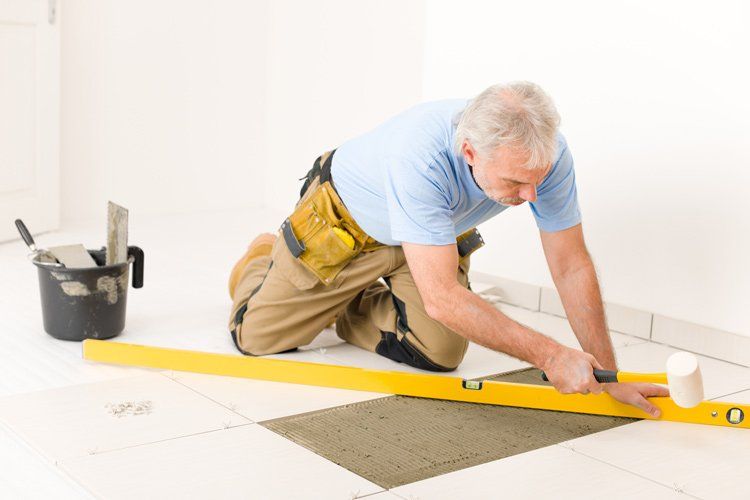BLOG

Four Essential Home Care Tips for a Cleaner, Safer Living Space Maintaining your home goes beyond just surface cleaning. Regular, thoughtful upkeep can prevent long-term issues, protect your investment, and create a healthier environment for your family. Kyshawn Lane, a home care influencer known for his popular “Weekly Home Check” series on Instagram, shares practical and actionable tips that every homeowner or tenant can benefit from. Here are four essential home maintenance tasks you should make part of your routine. 1. Flush Your Drains Monthly Drains are often forgotten until they become a problem. Grease, soap, and hair buildup can lead to clogs, odors, and slow draining sinks. Fortunately, keeping drains clean is easy and doesn’t require harsh chemicals. Pour half a cup of baking soda down the drain, followed by one cup of vinegar. Let it fizz and sit for 15 minutes. Finish with a kettle of boiling water to flush everything through. This eco-friendly method helps maintain flow and prevents the buildup of residue that could cause blockages over time. 2. Create a Home Inventory Video Disasters like fires, floods, or theft can strike unexpectedly. Preparing for the worst means being able to recover quickly and efficiently. One of the smartest ways to protect your belongings is to create a simple video inventory of everything you own. Walk through each room with your phone’s camera, capturing furniture, appliances, electronics, and other valuables. Mention brand names and serial numbers where possible. Store the video in the cloud so it’s easily accessible in the event of a claim. This can dramatically speed up the insurance process and reduce stress after a loss. 3. Vacuum and Rotate Your Mattress Your mattress collects dust, skin cells, sweat, and allergens over time. To keep it clean and extend its lifespan, rotate it 180 degrees and vacuum it every six months. Use a vacuum with a HEPA filter to remove dust mites and allergens effectively. If your mattress allows it, flip it as well. Regular rotation helps prevent uneven wear and sagging, which can impact your sleep quality. You can also spot clean stains using mild detergent and ensure it stays dry to avoid mold or mildew. 4. Deep Clean Your Dishwasher Your dishwasher may be cleaning your dishes, but it also needs regular cleaning itself. Over time, food particles, grease, and hard water buildup can cause unpleasant smells and reduce performance. Start by removing the racks and cleaning them with warm, soapy water. Take out the filter and spray arms and rinse away any gunk or debris. Then, place a cup of white vinegar in a dishwasher-safe bowl on the top rack and run a hot cycle. Finally, sprinkle baking soda on the bottom and run a short cycle. This will deodorize and sanitize your appliance, leaving it fresh and efficient.

Viral Cleaning Trends That Could Be Doing More Harm Than Good Social media platforms are full of cleaning hacks, trends, and product recommendations. From TikTok to Instagram, influencers regularly post new ways to clean your home faster, more effectively, or more “aesthetically.” But not all viral trends are actually helpful—and some can be dangerous or damaging to your home and health. Here are five popular cleaning trends that professionals warn against—and what you should be doing instead. 1. Faked Cleaning Videos Set Unrealistic Expectations Let’s start with the obvious: not everything you see online is real. Many “before and after” cleaning videos are staged, with grime applied just for the content. Some influencers even speed up footage or edit out crucial steps to make results seem effortless. This can lead viewers to feel frustrated or inadequate when they try the same techniques without success. Instead of chasing viral perfection, focus on achievable, consistent routines that suit your lifestyle and home environment. 2. Mixing Cleaning Products is Risky and Ineffective Mixing chemicals like bleach and ammonia—or even vinegar and bleach—can produce toxic fumes that are dangerous to inhale. TikTok is full of videos showing people combining multiple products for “super cleans,” but professional cleaners strongly advise against this. Always read labels and avoid mixing products unless you’re sure it’s safe. A single well-formulated cleaner is often more effective than a DIY chemical cocktail. 3. Mopping Floors with Ice Water? Don’t Do It One trend recommends using ice-cold water to mop floors, claiming it reduces streaking. But professionals warn that ice water can actually cause problems—especially with hardwood flooring. The cold temperature can make wood contract and, when combined with excess water, lead to warping, cracking, or fading. Use warm—not hot—water and a pH-neutral floor cleaner appropriate for your surface type. Always wring out your mop well to avoid oversaturating the floor. 4. Vinegar and Baking Soda Together—Not a Cleaning Miracle This combo has been around for decades, but while it creates an exciting fizz, it’s not the powerhouse cleaner many believe it to be. When combined, vinegar (an acid) and baking soda (a base) neutralize each other, creating mostly water and carbon dioxide. This means the individual cleaning power of each ingredient is lost. It’s better to use them separately—vinegar for cutting grease and mineral deposits, baking soda for scrubbing power. 5. Soaking Small Appliances in Water is Dangerous Perhaps the most shocking trend involves people submerging items like toasters or air fryers in water to “deep clean” them. This is extremely dangerous—not only can it ruin the appliance, but it also poses serious electrical and fire hazards. Always follow the manufacturer’s cleaning instructions and never fully immerse any electrical item in water. Instead, wipe down the exterior with a damp cloth and use a soft brush or vacuum nozzle to clean crumbs and debris inside. Final Thoughts While cleaning trends can be entertaining and occasionally useful, it’s essential to approach them with caution. What works in a staged video might not work—or be safe—in your real-life home. Stick to tried-and-true methods, and when in doubt, consult a professional cleaner or manufacturer guidelines. Your health and the longevity of your home are worth far more than a viral hack.
